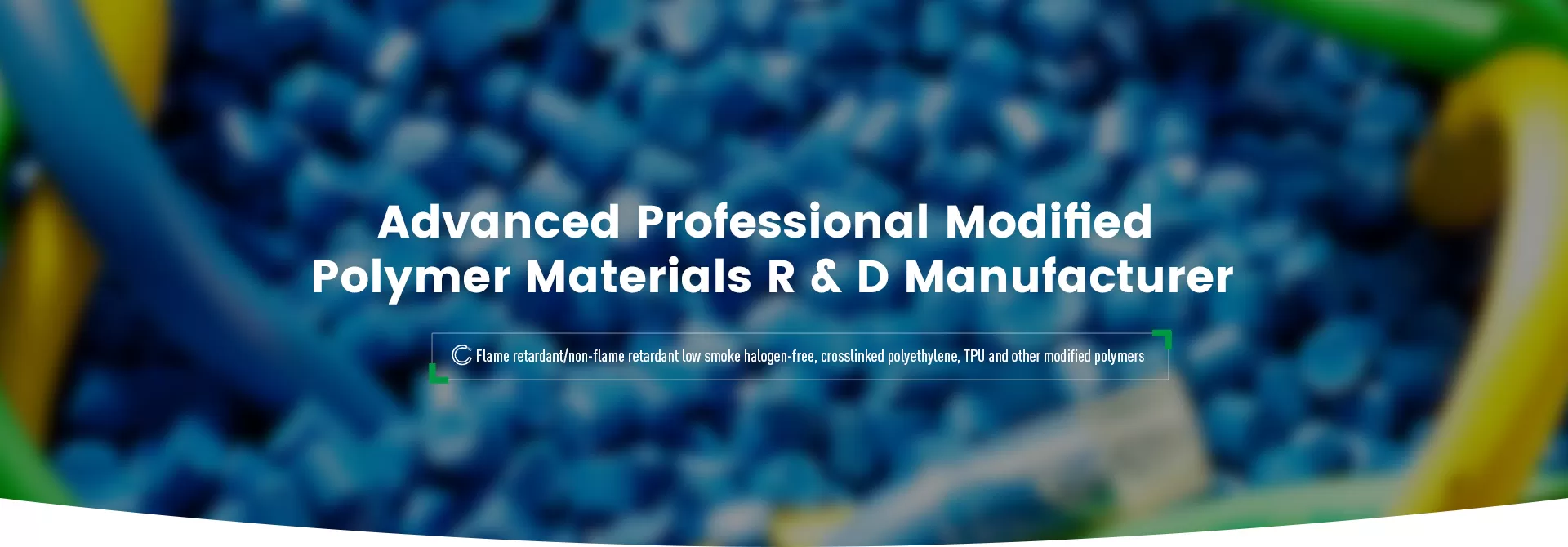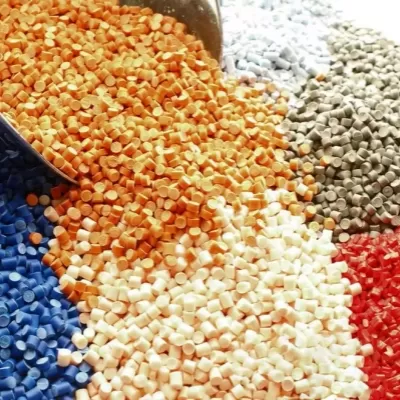

TPV plastic, known as Thermoplastic Vulcanizates (TPV), is a high-performance material that combines the advantages of both thermoplastics and vulcanized rubber. Its unique properties have made it important in a number of industries, including cables, automotive, home appliances, consumer electronics, and medical.
TPV Meaning: What is TPV Material?
TPV is a polymer material made by dynamically vulcanizing a thermoplastic (e.g., polypropylene, PP) with a cross-linked rubber (e.g., EPDM), which combines the processability of plastic with the elasticity of rubber.
High elasticity: similar to vulcanized rubber, with excellent flexibility.
Easy processing: no need for vulcanization, and can be efficiently produced through thermoplastic processes such as injection molding and extrusion.
High durability: excellent resistance to fatigue, abrasion and aging.
Environmentally friendly: recyclable to meet the needs of green manufacturing.
TPV compounds are modified products by adding various additives and enhancers to the basic TPV material to meet the needs of special applications.
Flame retardant TPV material: Widely used in electronics and cables to ensure product safety in high temperature or fire environments.
Halogen-free TPV material: No halogen content, low probability of releasing toxic gases by combustion.
UV-resistant TPV material: Suitable for outdoor cables, sheathing and other products to extend service life.
Impact-resistant TPV material: For high-strength application scenarios such as automotive parts and industrial equipment.
This ability to customize allows TPV compounds to adapt to the complex needs of different industries while increasing the market competitiveness of the product.
TPV Thermoplastic Vulcanizates are particularly suitable for use in the cable industry due to their high performance and versatility, covering three core application areas: cable compound, sheathing compound, and insulation compound.
1. TPV Cable Material
TPV cable compound has the following advantages:
Excellent fatigue resistance: the cable can still maintain stable performance under frequent bending or moving scenarios.
High and low temperature resistance: suitable for use in extreme climatic environments.
Resistant to chemical corrosion: resist the erosion of oil, solvents, and other chemicals.
Widely used in industrial cables, data cables, charging cables and other scenarios to ensure efficient and long-lasting performance.
2. TPV Sheathing Material
As the outer protective material for cables, TPV sheathing material has:
Excellent mechanical properties: anti-tearing, anti-abrasion, enhancing the cable's ability to resist external damage.
Water and moisture resistance: excellent performance in humid environments, protecting the internal conductors.
Anti-aging properties: not easy to age or harden under long-term exposure to UV rays, suitable for outdoor use.
3. TPV Insulation
TPV insulation is ideal for high-end cables because of its excellent electrical properties and thermal stability:
Reliable insulation performance: ensures the safe operation of cables under high voltage.
Strong thermal stability: maintains stable performance in high-temperature environments, suitable for industrial high-voltage cables.
In addition to cables, TPV plastics are also used in a number of industries due to their excellent performance:
1. Automotive Industry
Automotive applications for TPV materials are extensive due to their lightweight nature and durability. TPV is used in automotive seals, air ducts, dust covers, instrument panels, pedals, and other interior parts. The high elasticity, tensile strength, and aging resistance of TPV meet the high demands of the automotive industry for materials, supporting the lightweight design of automobiles while ensuring elastomeric properties.
2. Home Appliances and Consumer Electronics
TPV materials are used in home appliances and electronics in applications such as data and headphone cable jackets, remote control buttons, and cell phone housings, sealing gaskets, and appliance fittings. TPV not only enhances the tactile and aesthetic qualities of the product but also ensures its reliability in long-term use, even under harsh conditions. TPV's chemical resistance also adds to its suitability for these industries.
3. Medical and Food Industry
TPV materials are non-toxic, odorless, and biocompatible, and can be used for medical infusion devices, syringe seals, and food-grade seals.
4. Sports Equipment and Toys
Due to its softness and environmental friendliness, TPV is ideal for making children's toys, gym equipment handles, ensuring safety and comfort.
EPDM rubber, commonly used in TPV, enhances its compression set resistance. This means that TPV maintains its shape and structure after prolonged compression, ensuring long-lasting performance in automotive, cable, and sealing applications. Whether used in pipe seals or automotive components, TPV's unique combination of chemical resistance and high tensile strength ensures reliable, durable solutions that bridge the gap between traditional rubber and plastic materials.
In summary, TPV plastics provide exceptional performance across various applications, offering elastomeric properties similar to rubber with the processing ease of thermoplastics. This makes TPV ideal for industries such as automotive, cables, consumer electronics, and medical, where durability, flexibility, and performance are paramount.